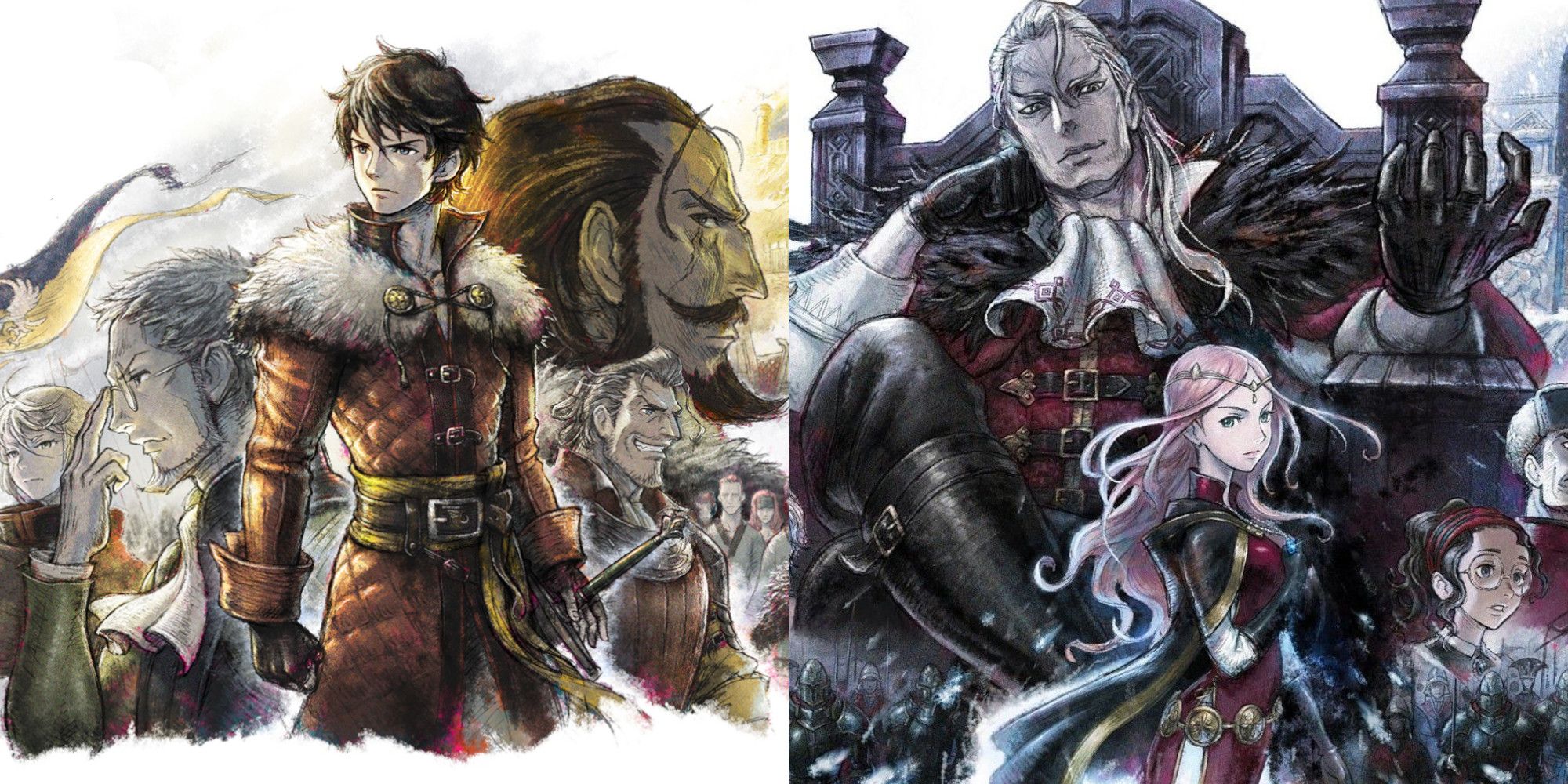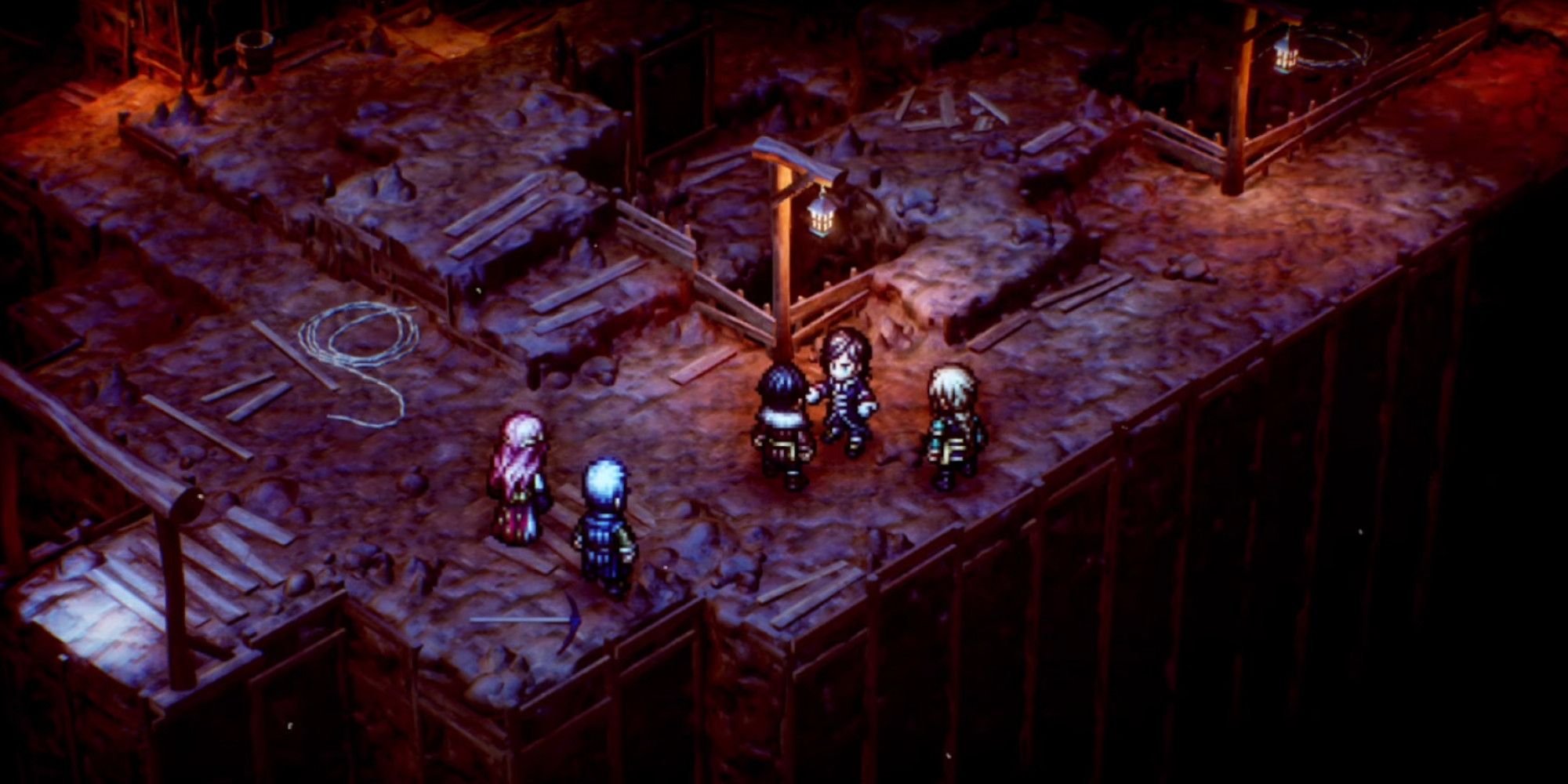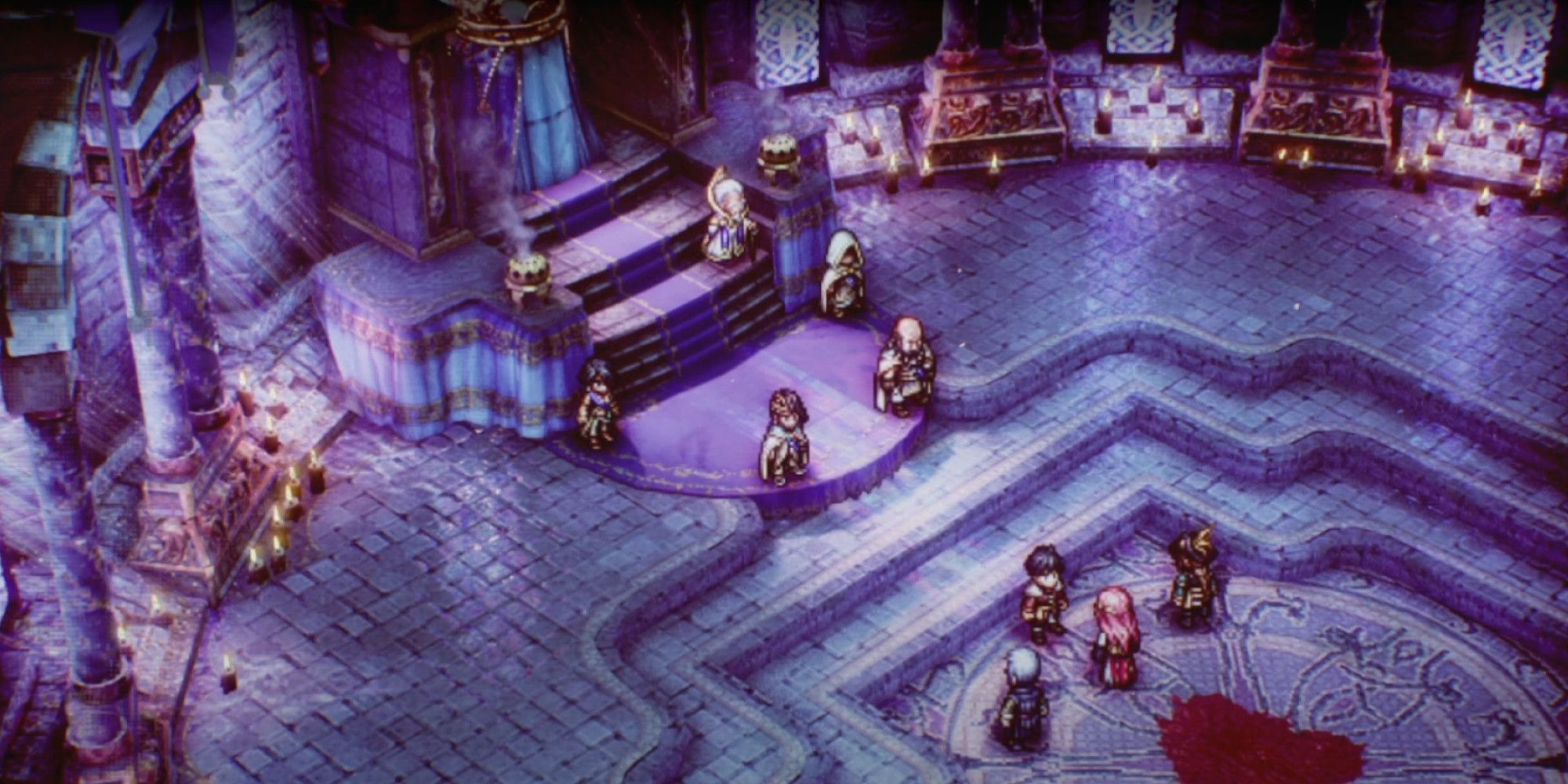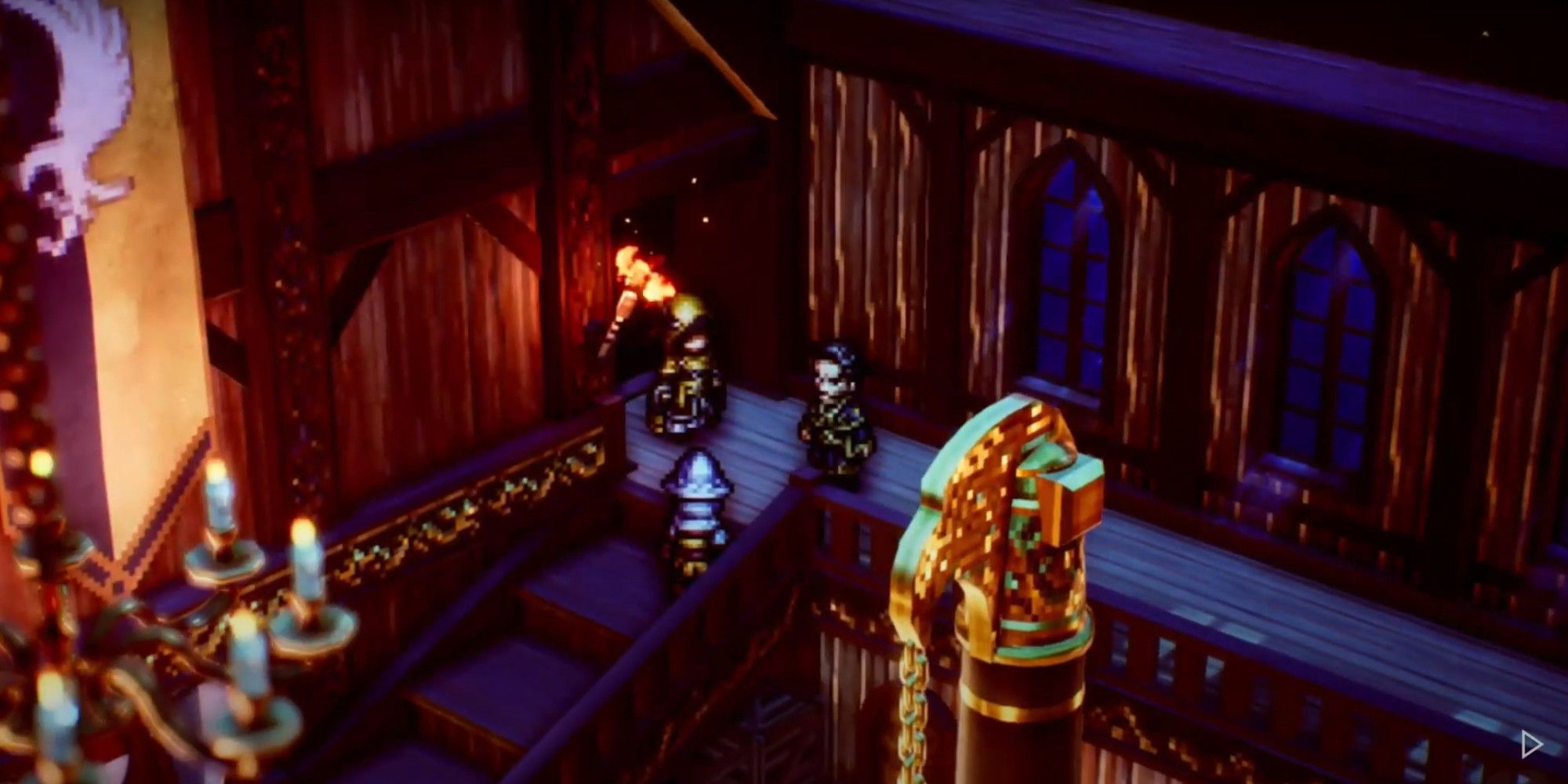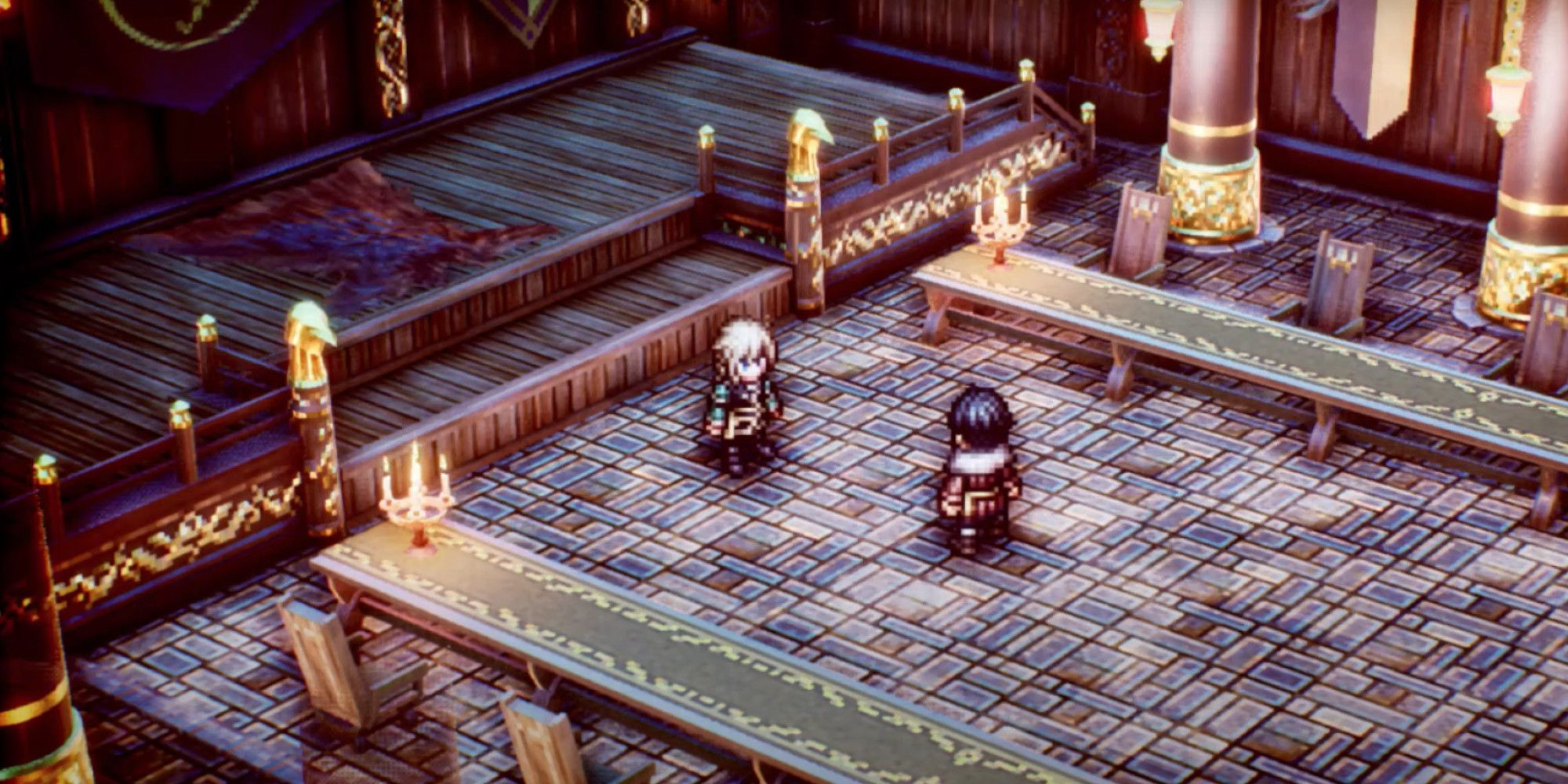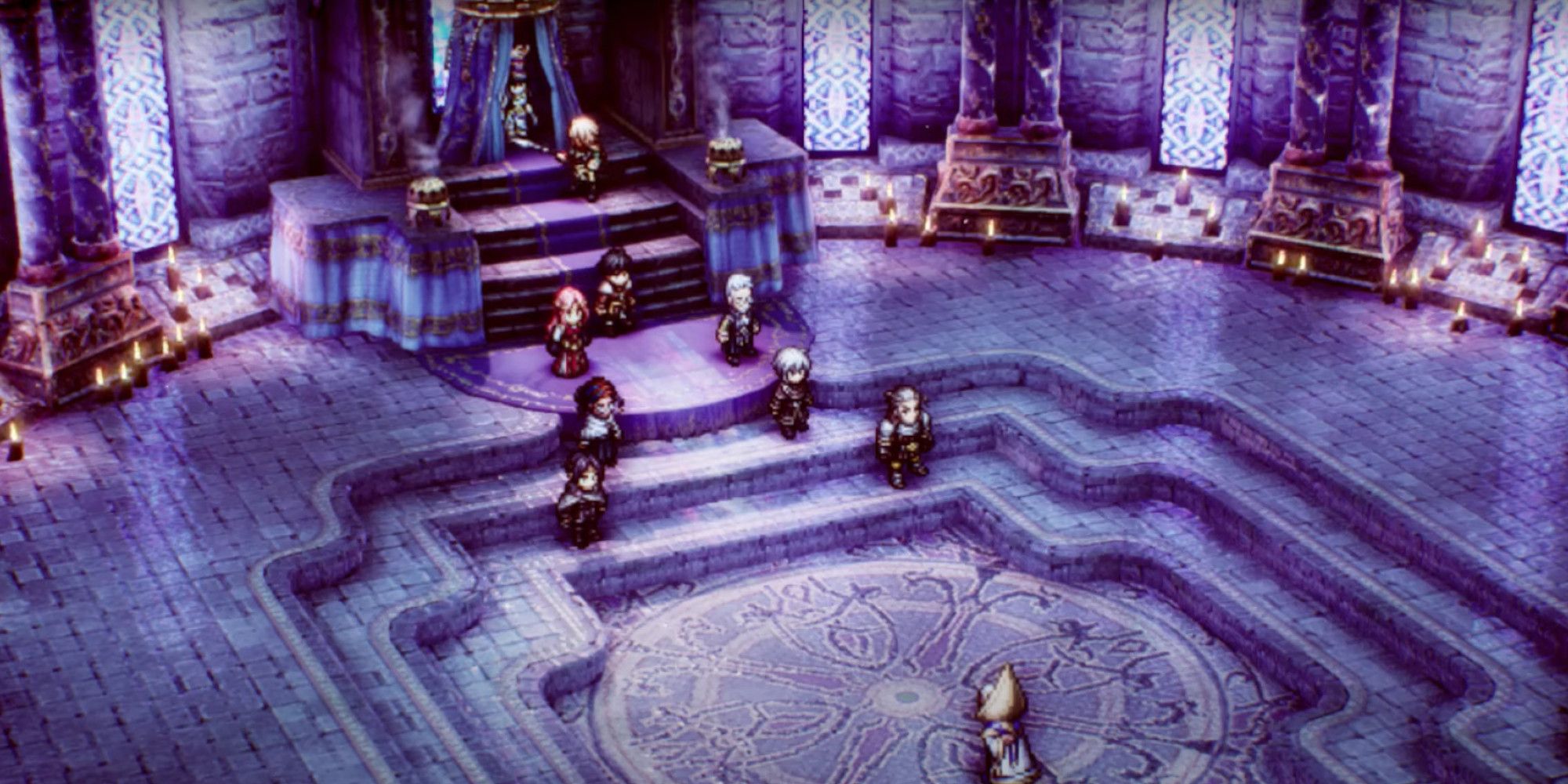Triangle Strategy is an outstanding tactical RPG, and thanks to its top-notch strategy gameplay, a wide range of characters, and intriguing story, is a must-play for those who love the genre. Throughout House Wolffort’s journey to bring peace to Norzelia, many parts of the game will raise some questions.
In some parts of the game, you’ll wonder why certain characters have the motives they do, how Norzelia ended up the way it did, and how some characters' relationships ended up the way they did, among several other things. Here are a few of the questions we had upon finishing Triangle Strategy. While mostly made with the golden route through the game in mind, some are universal across all routes.
This list contains spoilers for Triangle Strategy
5 How Would The Game Play Out If Dragan Wasn’t Killed?
One of the game's earliest plot twists comes in Chapter 4. Dragan is the cousin of Gustadolph, one of the main villains of the game, and oversees the mining operations in the Grand Norzelian Mine. One day he and his miners discover something that could change the state of Norzelia as they know it, and in turn, he demands that Gustadolph gives him the role of Prime Minister in exchange for his discovery.
All while this is happening, House Wolffort comes to visit the mine, and Dragan is keen on making sure that no outsiders see his discovery. When word of Dragan’s discovery reaches Gustadolph, he sends Aesfrostian soldiers to assassinate him, never giving him a chance at Prime Minister to begin with, and claiming Dragan’s findings as his own.
Gustadolph commits many horrible acts throughout the game, but this is one of the earliest ones and establishes him as a major villain in the game. With that being said though, it is interesting to think about how Dragan would have handled things if he had his way. He very clearly wants to use his findings as some sort of “checkmate” against Gustadolph, so much so that he refuses to let anyone from House Wolffort know.
Could it be that Dragan was just as power-hungry as Gustadolph, and would’ve made similarly harsh decisions as Prime Minister of Aesfrost? It’s hard to say given how little we got to see of him, but it’s not entirely out of the question considering how much he swore to protect his discovery.
4 Why Was Serenoa So Easily Accepted Into The Saintly Seven?
After House Wolffort and Hyzante reclaim Glenbrook from Aesfrost in Chapter 15, Serenoa is offered a spot on the Saintly Seven by Idore. Prior to Hyzante and Wolffort’s agreement to reclaim Glenbrook, one of the members of the Saintly Seven was deemed by the Hierophant to be a traitor and was executed. Given the agreement between the two, Serenoa seems to be a worthy addition. However, it does seem like a very pre-emptive appointment.
A spot on the Saintly Seven is considered one of the highest honors in Hyzante, and before accepting his position Serenoa doesn’t seem to be fully committed to Hyzante. Furthermore, there are multiple moments in the story where Serenoa clearly states that House Wolffort doesn’t believe in the teachings of the Goddess, and has gone to lengths to defend the Roselle — the group of people deemed unforgivable by the teachings of Hyzante’s Goddess.
While Serenoa does accept the offer, in the end, it does seem like a very strange offer by Idore, given how Serenoa does not put Hyzante above all else, and it’s a decision that falls through in the end, as Serenoa eventually betrays Hyzante.
While Idore’s reasoning may have had to do with the Hierophant’s will, claiming Serenoa to be worthy of the Saintly Seven, it is later revealed that the Hierophant is not even real, and Idore must have put some of his own reasoning into such a decision.
3 Why Did Patriatte Betray Wolffort So Suddenly?
Patriatte is a royalist in the Kingdom of Glenbrook, and remains loyal regardless of who is in control. He is with the Kingdom when the Glenbrook family is in control, he offers his support when Aesfrost conquers the kingdom, and he remains with them when the Glenbrook family regains control.
He truly puts the Kingdom of Glenbrook first, regardless of the circumstances. However, in Chapter 15 he makes a decision that would leave the kingdom in a troubled state. When Svarog Wolffort finally awakes and is to meet with Serenoa, Patriatte attends their gathering and brings a group of assassins with him to take out both Svarog and Serenoa. This conflict ends with Svarog and Patriatte being assassinated, while Serenoa survives.
In Patriatte’s dying moments, he claims that House Wolffort is a danger to the Kingdom of Glenbrook. While it is apparent that Glenbrook is struggling at this time, given that they had been ambushed again, it’s no secret that Serenoa cares greatly for Glenbrook, and that he and Roland are very close. Perhaps he believed that Gustadloph was a more fit ruler of Glenbrook than anyone else — though Patriatte suffered greatly under his rule, so it’s tough to say.
Regardless, for someone who claims to care for the kingdom as much as he does, it seems like a very reckless and sudden decision to make.
2 Why Was Roland So Content With Leaving The Roselle To Suffer?
Chapter 17 is the most important in Triangle Strategy up until this point. In this chapter, you are forced to make a decision that will decide the ending of the game. Benedict, Frederica, and Roland all bring up separate suggestions on how to move forward, each of their plans having strengths and weaknesses.
Frederica obviously wants to work to free the Roselle, and Benedict wants to work alongside Gustadolph to bring an end to Hyzante, pushing the freedom of the Roselle down on his list of priorities. Roland, on the other hand, has a much different suggestion. He wishes to give in to Hyzante, working with them to bring freedom to all of Norzelia, except for the Roselle. In his plan, he believes that forcing the Roselle into a life of slavery is a necessary step to end the war.
While his aspiration to bring the war to an end is admirable, as one of the party members who saw what it was like at the source, and the manual labor the Roselle had to deal with, suggesting a plan like this seems as if he is just giving up on what he stands for.
While it’s clear that he wants to end the war, the goal of House Wolffort was to bring peace to all of Norzelia. Bringing peace for most, at the expense of a few, seems to go against what they stood for in the first place.
1 How Was The Hierophant’s Nature Suppressed For So Long?
Throughout all of Triangle Strategy, the nation of Hyzante follows the teachings of the Goddess — though there isn’t a lot of background on who the Goddess is. The Hierophant, who is one of the members of the Saintly Seven, is said to be the bridge between the Goddess and the rest of Hyzante, and Idore always listens to the Hierophant for direction and considers their word final.
The Hierophant is always hiding behind a curtain when the Saintly Seven meet, though none have seen them — except for Idore. During the final chapter of the game, House Wolffort makes its way into Hyzante and reveals the true nature of the Hierophant, showing that the Hierophant is nothing more than a puppet that Idore created.
This comes as a major shock in the game’s story and gives context to just about everything Hyzante stands for, as it confirms that the Goddess doesn’t exist and the laws of Hyzante were all the doing of Idore. What is possibly more concerning, however, is the fact that it seems as if the teachings of the Goddess have never been questioned throughout all of Hyzante’s history. It even seems that some who reside in Hyzante don’t truly follow or believe in the Goddess, such as Corentin and Milo. Both used to live in Hyzante, but later in the game became part of House Wolffort.
Perhaps there have been members who have tried defying the Goddess and were just removed from Hyzante and erased from their history, or perhaps many of Hyzante’s residents don’t believe in the Goddess but are too afraid of the punishments for standing against it. While the game may not give a true answer to how Hyzante came to be, it is interesting to think of how the corrupt Hyzante rose to the status that it achieved.

